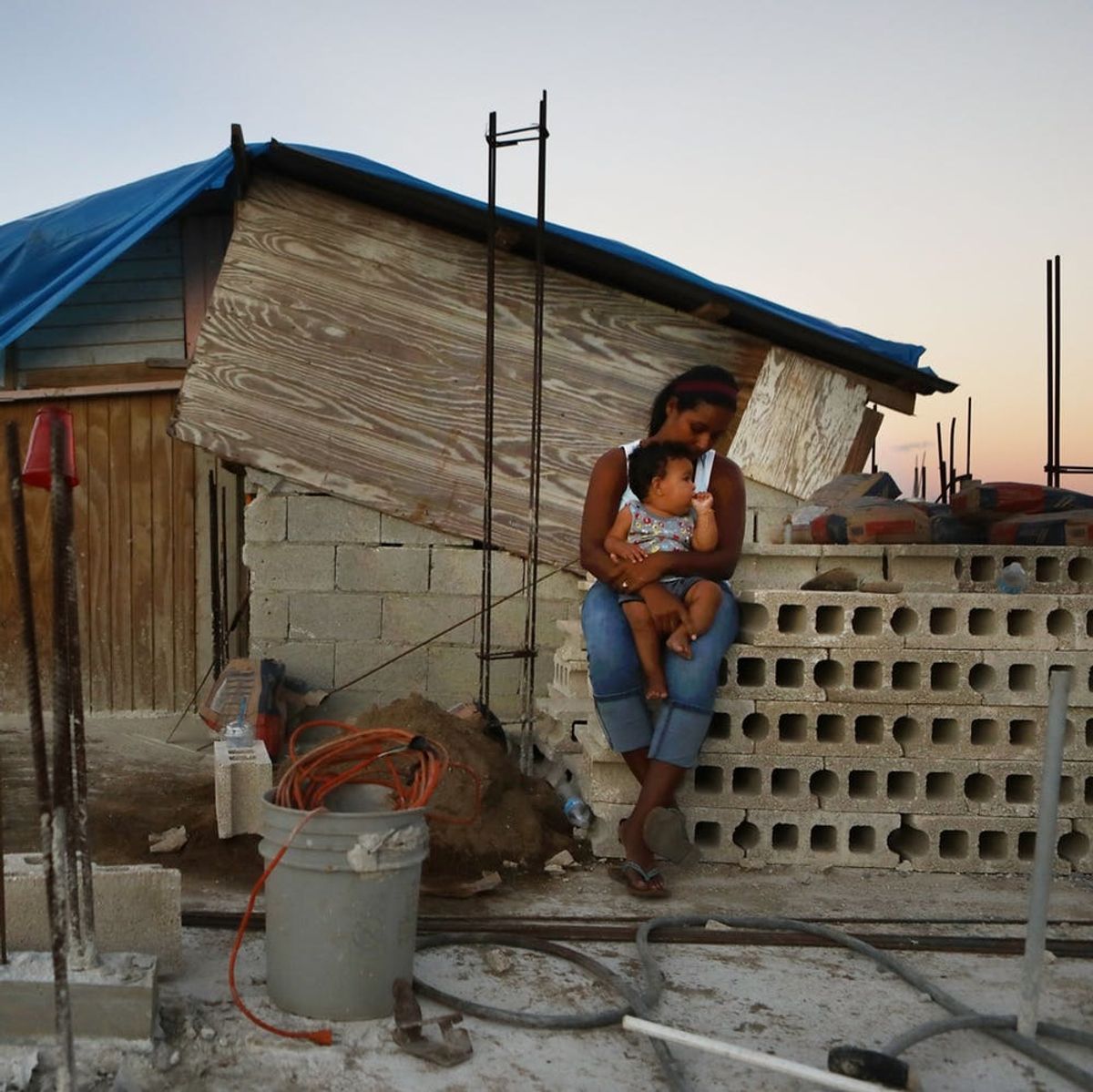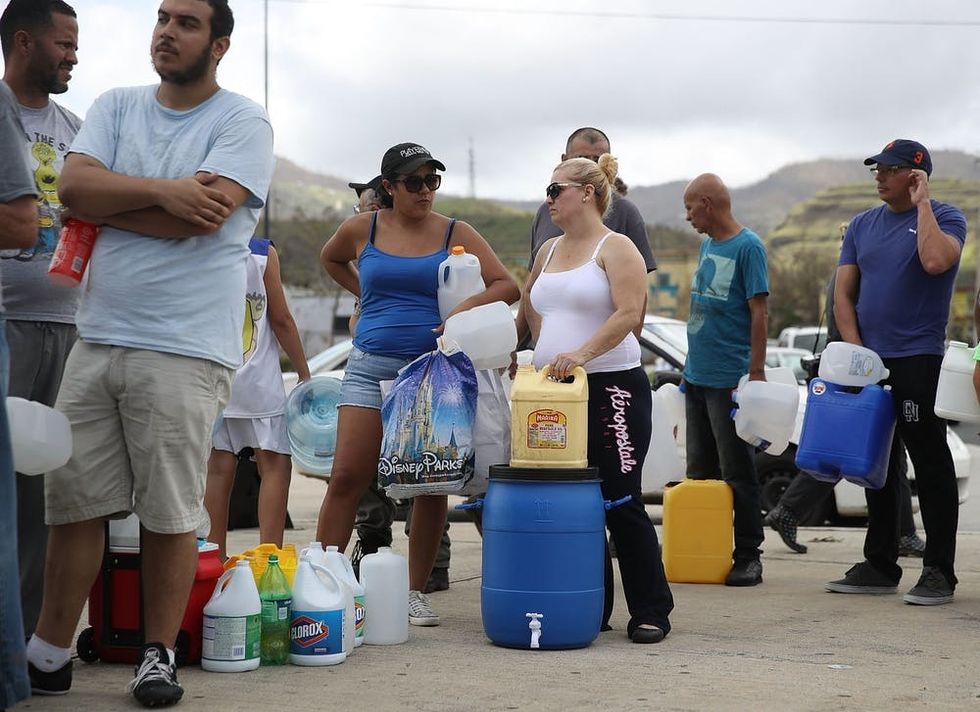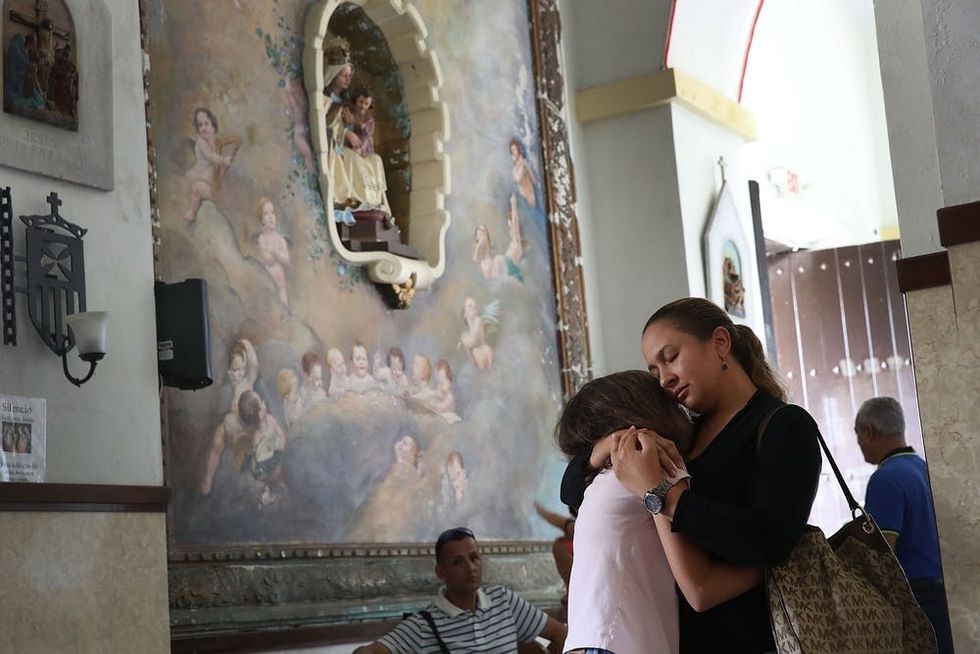New Survey Estimates at Least 4,645 People Died from Hurricane Maria in Puerto Rico

It has been eight months since Hurricane Maria devastated much of Puerto Rico, leaving most of the island without power or drinkable water. And while Puerto Rican residents and human rights advocates have drawn attention to the vast number of people who died in the aftermath of the storm, the US government has only officially counted a few dozen deaths. A new survey now confirms what Puerto Ricans have been saying for months: Several thousand people died as a result of the hurricane and the neglect of the US government to provide adequate aid.

The official US government count of deaths due to Hurricane Maria currently sits at 64. But according to an article published in the New England Journal of Medicine on Tuesday, there were an estimated 4,645 “excess deaths” in Puerto Rico between September 20 and December 31 of 2017. Between September and October alone there were more than 1,000 deaths. The article notes that the total estimation is likely an underestimate.
The number of deaths is based on a survey of 3,299 representative, randomly selected Puerto Rican households. The authors of the study used the data they collected from residents to estimate 14.3 deaths per 1,000 people, which comes out to the 4,645.
Puerto Rican residents and politicians have argued that with proper aid from the United States, there wouldn’t have been as many deaths. There have been myriad failures on the part of the government to provide the necessary support to Puerto Ricans that created a tragic humanitarian crisis.

Though much of the island was devastated because of the hurricane, FEMA stopped providing food to Puerto Rico, without warning, in January. During a news conference that same month in Orlando, Florida, Puerto Rico governor Ricardo Rossello said that the US was treating Puerto Ricans like “second-class citizens.”
For weeks after the hurricane, hospitals were short-staffed and under-resourced, making it challenging to treat everyone who needed care. Further, Puerto Ricans were at risk of water-borne illnesses due to intense flooding.
According to the article, disruptions in health care were the number-one cause of deaths following Maria. One-third of the excess deaths were caused by “delayed or interrupted health care,” the survey found. The article’s authors note that gaps and delays in health care “is now a growing contributor to both morbidity and mortality in natural disasters.”
In the absence of electricity, sufficient medication, and facilities, those who already have chronic illnesses which require ongoing care are especially at risk following natural disasters. The article states that these impacts have been observed following Hurricane Katrina, Superstorm Sandy, Hurricane Harvey, and Hurricane Irma. Following these disasters, people living in nursing homes were especially at risk for increased rates of death.
The authors of the article state that there are a few reasons why it is imperative to have timely and accurate accounts of deaths following disasters. First, knowing how many people died is imperative for determining what is required going forward. Second, and very importantly, the article notes that accurate counts bring closure to family and loved ones, and also means that families can receive necessary assistance.
“It’s important to acknowledge what happened and why they lost their family members,” researcher Dr. Satchit Balsari said in a conference call, according to HuffPo.
Now that research demonstrates at least 4,645 have died as a result of Hurricane Maria, the neglect of the US government can’t be denied. Puerto Ricans have said for months that the lack of aid was killing people, and the new survey demonstrates the government should have listened to them sooner. With much of the island still without power and water, aid is still urgently needed.
What do you think? Tell us on Twitter @BritandCo.
(Images via Mario Tama/Getty Images)

















